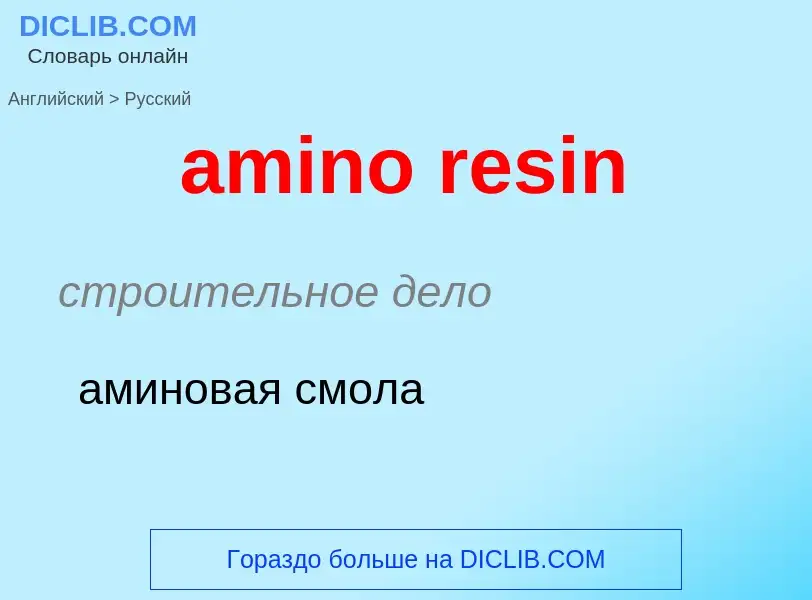Translation and analysis of words by ChatGPT artificial intelligence
On this page you can get a detailed analysis of a word or phrase, produced by the best artificial intelligence technology to date:
- how the word is used
- frequency of use
- it is used more often in oral or written speech
- word translation options
- usage examples (several phrases with translation)
- etymology
amino resin - translation to russian
строительное дело
аминовая смола
общая лексика
незаменимая аминокислота
медицина
эссенциальная аминокислота
Definition
Wikipedia
.jpg?width=120)
In polymer chemistry and materials science, a resin is a solid or highly viscous substance of plant or synthetic origin that is typically convertible into polymers. Resins are usually mixtures of organic compounds. This article focuses on naturally occurring resins.
Plants secrete resins for their protective benefits in response to injury. The resin protects the plant from insects and pathogens. Resins confound a wide range of herbivores, insects, and pathogens, while the volatile phenolic compounds may attract benefactors such as parasitoids or predators of the herbivores that attack the plant.

.jpg?width=200)
![[[Caranna]], a hard, brittle, resinous gum from species of ''Protium'' [[Caranna]], a hard, brittle, resinous gum from species of ''Protium''](https://commons.wikimedia.org/wiki/Special:FilePath/Protium Sp. MHNT.BOT.2016.24.54.jpg?width=200)
![gum]] or [[mucilage]], and chemically very different. gum]] or [[mucilage]], and chemically very different.](https://commons.wikimedia.org/wiki/Special:FilePath/Resin on Almond tree.jpg?width=200)

